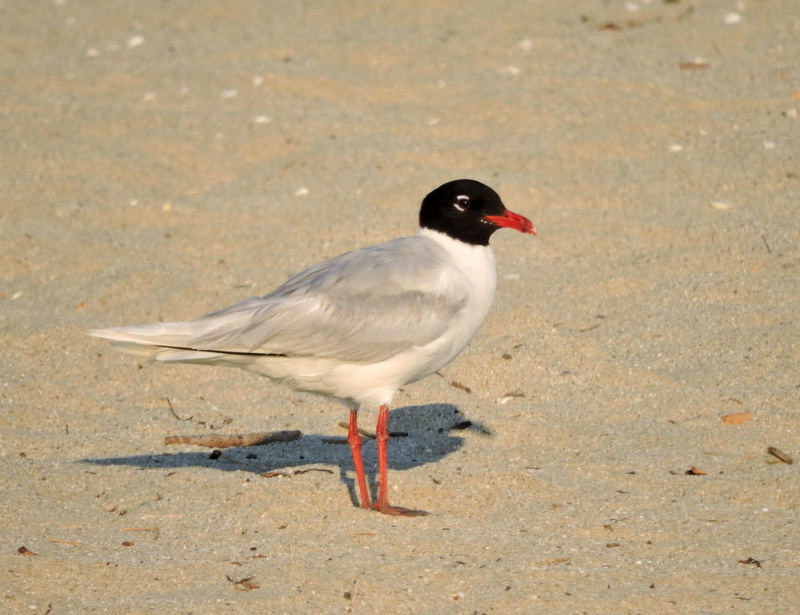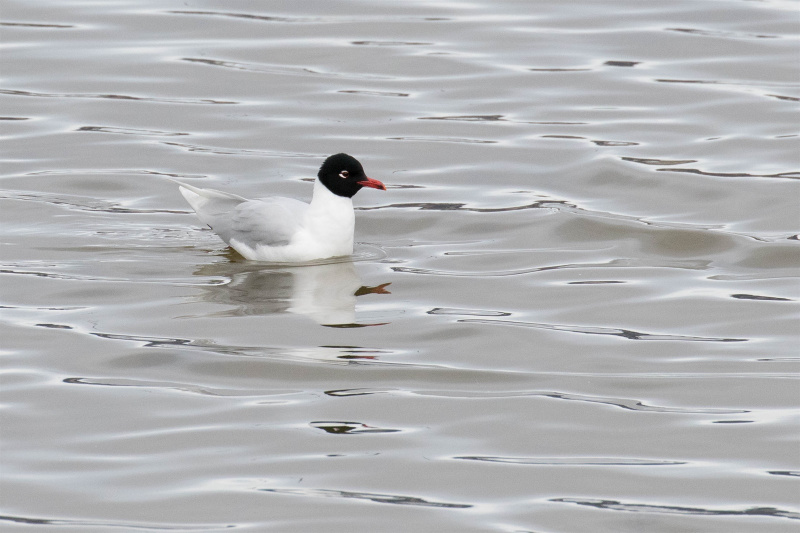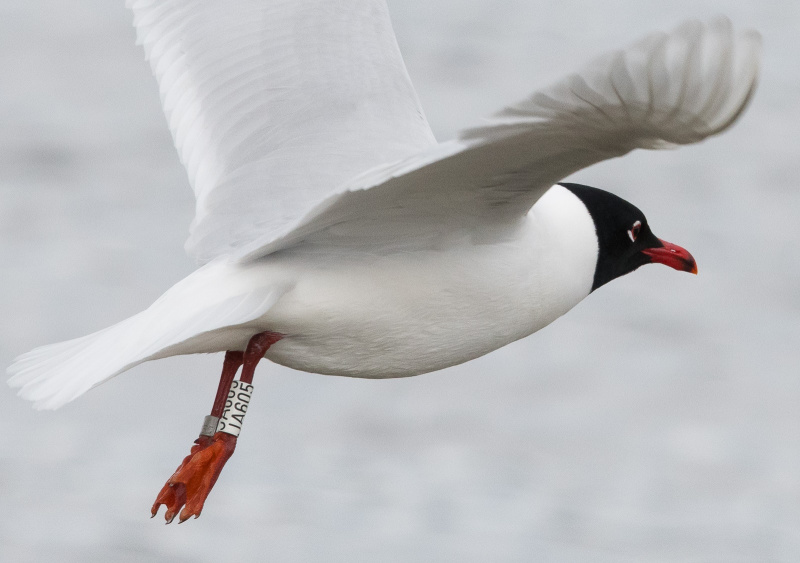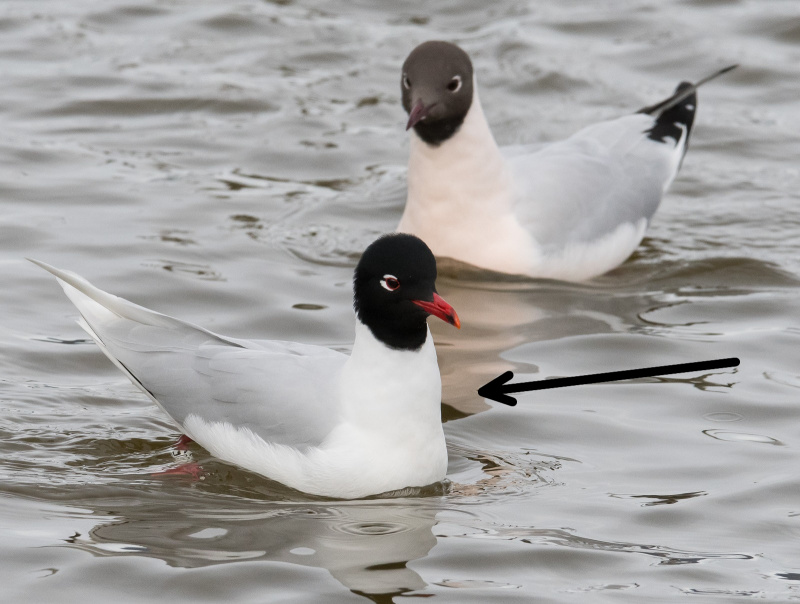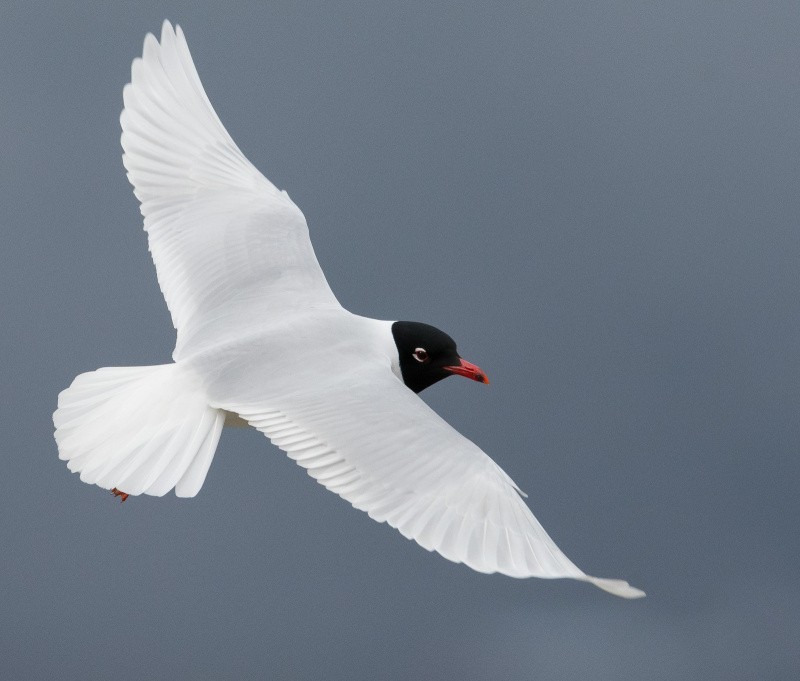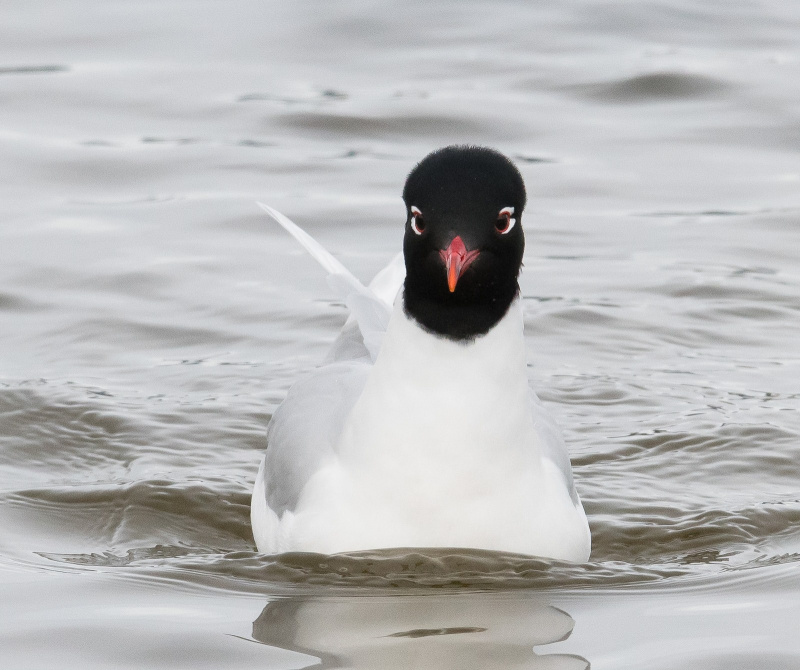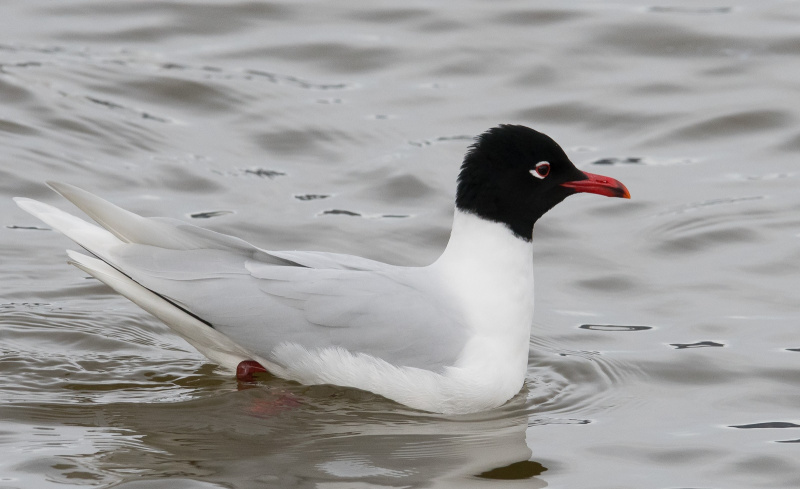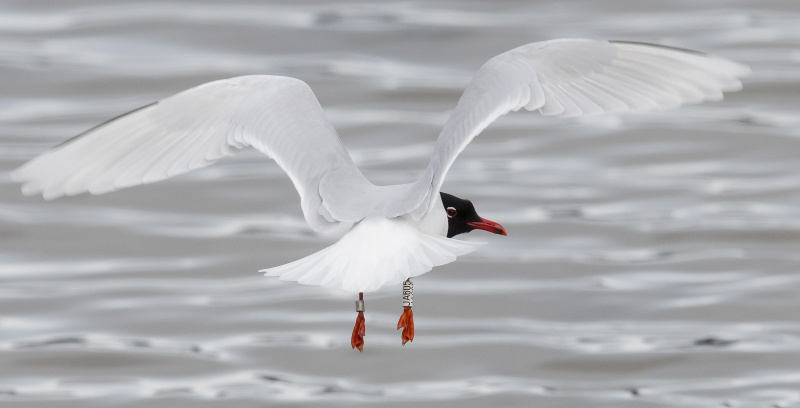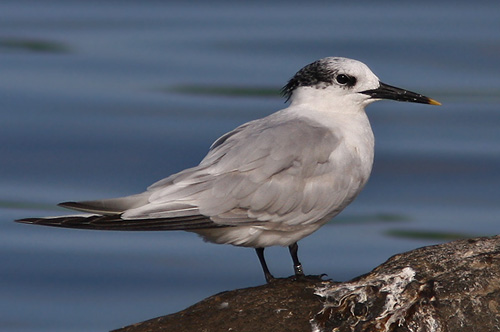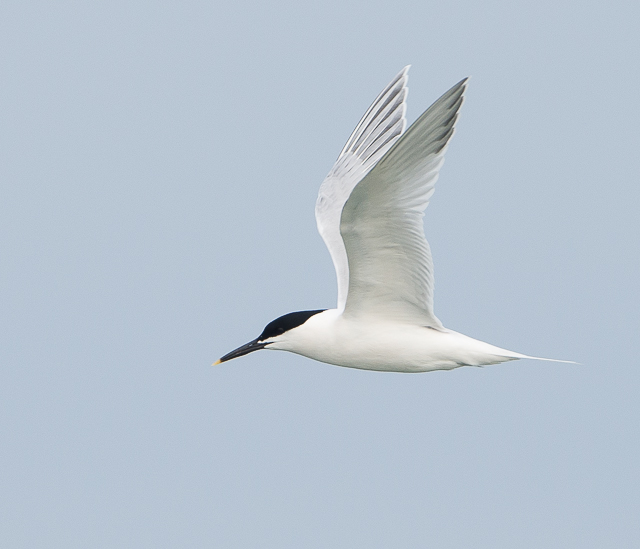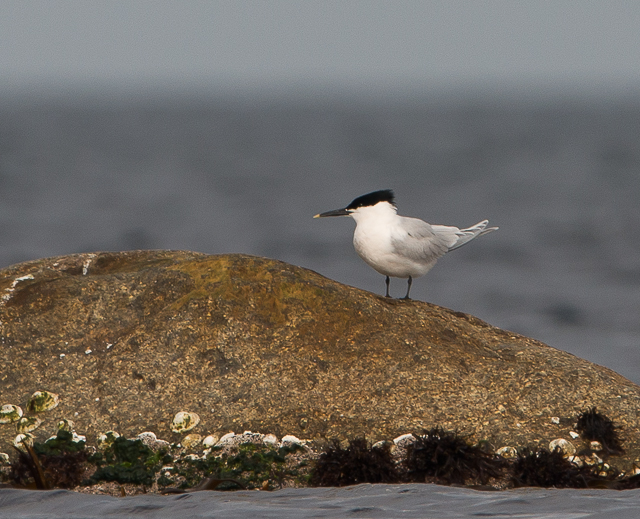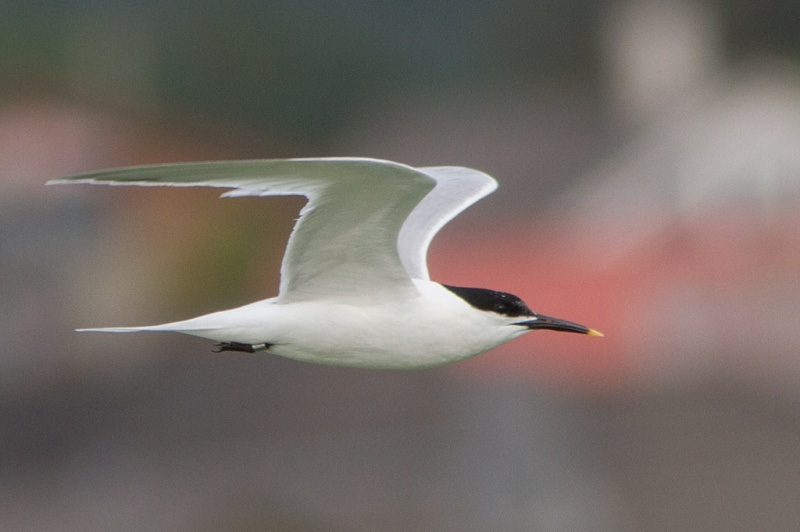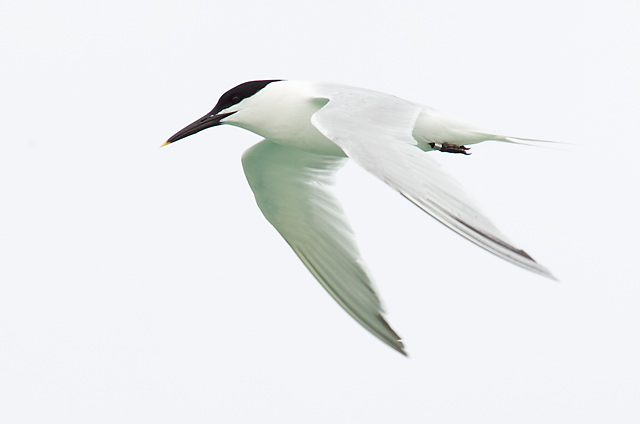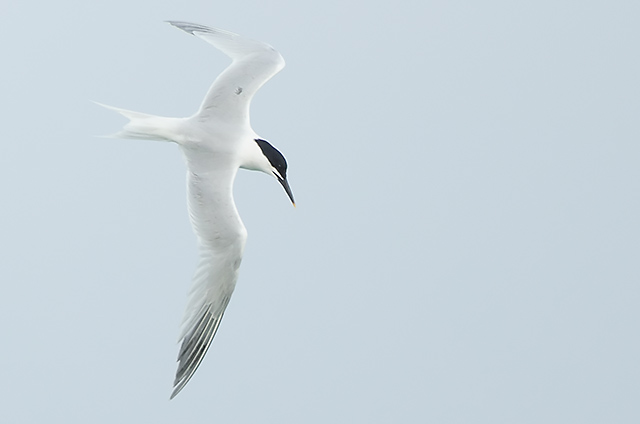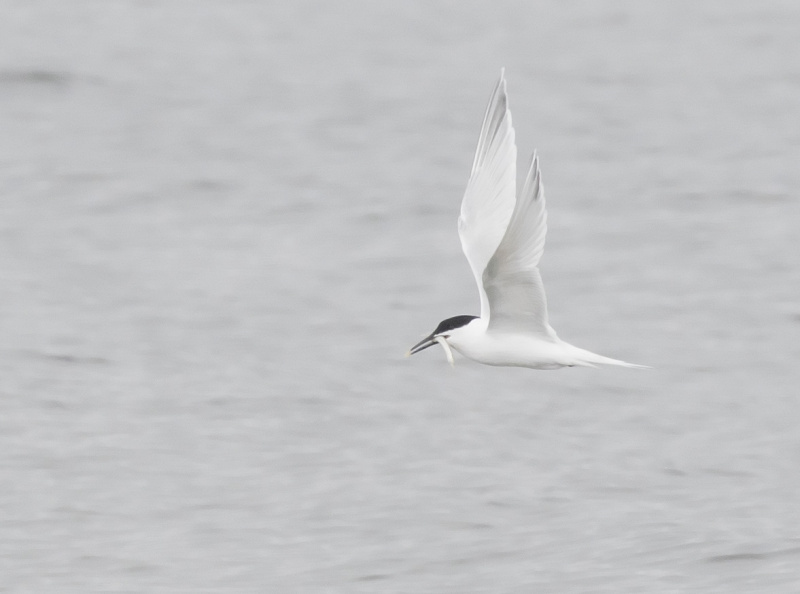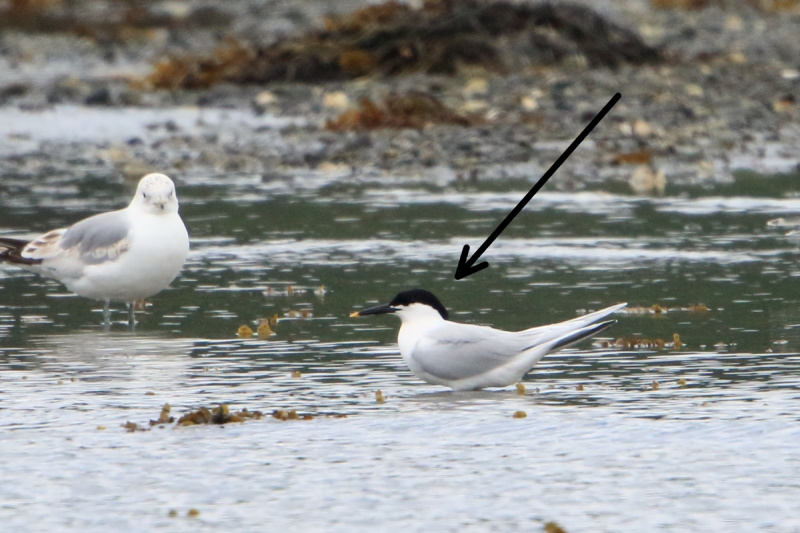Mediterranean Gull (Ichthyaetus melanocephalus)
Sandwich Tern (Thalasseus sandvicensis)
Small, but bulky gull. Black hood with white crescents above and below eye, blood-red bill and legs in breeding plumage. The rest of the body seems all white at a distance. Wingtips pure white in adult birds. Chest deeper than in Black-headed gull, and wings fairly broad and rounded. In winter the black hood is largely lost, but dark streaking around, and at the back of the eye remains. Juveniles can be confused with juvenile Mew Gull (Common Gull), but note white under wing-coverts, pale grey band (greater coverts) across secondaries, black or reddish bill and more narrow terminal band of tail. Paler belly than Mew/Common Gull. Second year birds are similar to adult winter, but varying degrees of black markings remains on wing-tips.
Sound:Distinct calls which can be identified even in mixed flocks. Most common call a short, mewing "yeah". Pitch rises and fall rapidly, with a "surprised" intonation. Timbre is nasal but clear and pure. Alarm call a series of short "ke-ke-ke", with similar timbre.
Contact call:
Distribution:
Wikipedia: map (se also Xeno-canto below)
Ecology:Birdlife ecology
Links:
Observation.org Latest observations
Image search Flickr NB! May give other species
CCCreative Commons,www.xeno-canto.org,Patrik Åberg,http://creativecommons.org/licenses/by-nc-sa/4.0/
Large tern with black bill, with yellow tip (adults). Bill all black in juveniles. Long black cap and shaggy crest. Generally leaves a much whiter impression than other terns in the region (except Roseate Tern). Adult summer: Yellow bill-tip. Tail pure white, and upperparts pale grey. Outer primaries darker than rest of wing, and contrast increases in worn plumage. Broad white trailing edge to inner wing. Underside of primaries with faint narrow dark trailing edge. Forehead white in adult winter and first winter plumage. Juveniles: scaly upperparts and dark bill. Less evenly coloured than juvenile Gull-billed Tern. First winter birds similar to juveniles, but back purer grey and bill shorter. Can be mistaken for Gull-billed Tern, but note different profile. Flight powerful with evenly narrow wings and a front-heavy appearance, due to the long head and bill. Often dives from high above the surface and stays under water longer than Common and Arctic T.
Sound:Contact call a sharp and grating "keeree-eek". Often compared to the pressing of amalgam into a tooth.
Contact call:
Distribution:
Xeno-canto: map
Ecology:Birdlife ecology
Links:
Observation.org Latest observations
Image search Flickr NB! May give other species
CC
 English
English Albanian
Albanian
 Armenian
Armenian
 Bulgarian
Bulgarian
 Catalan
Catalan
 Croatian
Croatian
 Czech
Czech
 Danish
Danish
 Dutch
Dutch
 Finnish
Finnish
 French
French
 Georgian
Georgian
 German
German
 Greek
Greek
 Hungarian
Hungarian
 Italian
Italian
 Latvian
Latvian
 Lithuanian
Lithuanian
 Macedonian
Macedonian
 Norwegian
Norwegian
 Polish
Polish
 Portuguese
Portuguese
 Romanian
Romanian
 Russian
Russian
 Sami : Lule sami
Sami : Lule sami
 Sami : North sami
Sami : North sami
 Sami : South sami
Sami : South sami
 Scientific names
Scientific names
 Serbian
Serbian
 Spanish
Spanish
 Swedish
Swedish
 Ukrainian
Ukrainian

